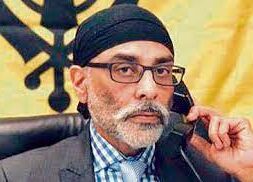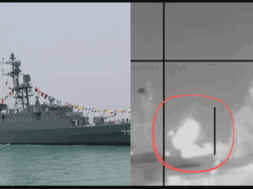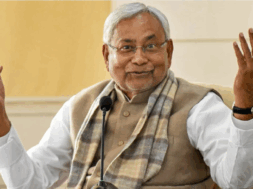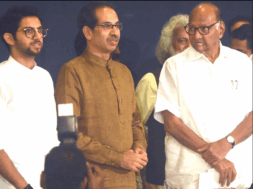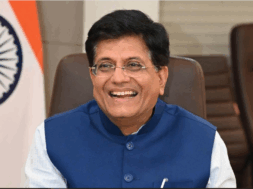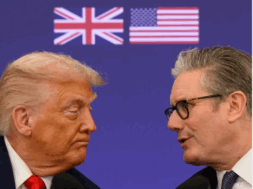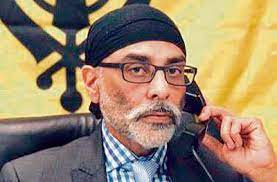
NIA Confiscate Pannun Property amidst Worsening India – Canada Relations
Manas Dasgupta
NEW DELHI, Sept 23: Amidst worsening of relations between India and Canada over the Khalistan issue, the National Investigation Agency on Saturday confiscated the properties of the “designated individual terrorist” and head of the United States-based pro-Khalistan separatist organisation “Sikhs for Justice” Gurpatwant Singh Pannun under court orders.
The confiscated properties included 46 kanal agricultural land located in Khankot village of Amritsar and 1/4th share of a house in Chandigarh. “These properties were earlier attached following orders passed by the government in two different cases. The properties have now been confiscated on the court’s orders under Section 33(5) of the Unlawful Activities Prevention Act…,” the NIA said, adding that it was related to the case registered on April 5, 2020. Pannun is currently operating from Canada. Pannun faces 22 criminal cases in Punjab, including three of sedition.
India has also revealed that the Canadian Khalistani separatist Hardeep Singh Nijjar, a designated terrorist in India, whose murder created the diplomatic row between India and Canada, was allegedly involved in crime since the 1980s and had connections with local goons from a young age. A detailed dossier prepared by Indian authorities said Nijjar, who fled to Canada on a forged passport in 1996 and maintained a low profile as a truck driver there, travelled to Pakistan for arms and explosives training. He also allegedly ordered several killings and attacks in Punjab while taking refuge on Canadian soil.
The NIA sources said the action has been taken against Pannun following the confiscation orders passed by an NIA special court in Mohali, Punjab. This is the first time that properties of an absconding accused of the NIA, have been confiscated
He has been on the NIA’s radar since 2019, when the agency had registered its first case alleging his major role in promoting and commissioning terror acts and activities, and spreading fear and terror in Punjab and elsewhere in the country through threats and intimidation tactics.
On February 3, 2021, non-bailable warrants of arrest were issued against Pannun by the NIA court and he was declared a “Proclaimed Offender” on November 29 last year. According to the NIA, its probe has revealed that the SFJ was misusing the cyberspace to radicalise gullible youth and instigate them to undertake terrorist activities. He was the main handler and controller of the outfit, which was declared an unlawful association by the Ministry of Home Affairs vide a notification dated July 10, 2019, and was designated an “individual terrorist” on July 1, 2020.
He has been accused of exhorting Punjab-based gangsters and youth over the social media to indulge in pro-Khalistan activities, challenging the sovereignty, integrity and security of the country.
“The action comes as a big boost to the country’s crackdown on the terror and secessionist network being operated from various countries, including Canada, the NIA statement said. It claimed that Pannun had recently threatened Indo-Canadian Hindus to leave the country and return to India. In a viral video amid a massive diplomatic row following the murder of Nijjar, Pannun was heard saying, “Indo-Canadian Hindus, you have repudiated your allegiance to Canada and Canadian Constitution. Your destination is India. Leave Canada, go to India.” “Pro-Khalistan Sikhs have always been loyal to Canada. They have always sided with Canada, and they have always upheld the laws and the Constitution,” he added.
Pannun also urged all Canadian Sikhs to gather in Vancouver on October 29 for a referendum to vote on whether the Indian High Commissioner Sanjay Kumar Verma was responsible for Nijjar’s killing.
In recent days, Pannun has been in the news for issuing blatant threats to senior Indian diplomats and government functionaries in public forums. Pannun’s outfit advocates for a religion-based separate state carved out from Punjab and many neighbouring areas in India, to be known as ‘Khalistan’. It has also conducted “Punjab Independence Referendum” in Canada and Australia. The Indian government has called the so-called referendums ‘unfortunate’ and asked the Canadian government to act against it.
Nijjar, a resident of Jalandhar, was associated with Khalistan Commando Force (KCF) in the 1980’s and later since 2012, he was closely associated with Jagtar Singh Tara, the Pakistan-based Khalistan Tiger Force (KTF) Chief. Nijjar escaped to Canada in 1996. He also visited Pakistan in the garb of a Baisakhi jatha member in April 2012 and underwent an arms and explosive training there for a fortnight.
After returning to Canada, he allegedly started arranging funds for terror activities through his associates engaged in drugs and arms smuggling in Canada. Nijjar planned with Jagtar Singh Tara to execute a terror attack in Punjab and raised a gang in Canada which included Mandeep Singh Dhaliwal, Sarbjit Singh, Anupveer Singh, and Darshan Singh alias Fauji, sources said, adding that they received arms training in British Columbia, Canada in December 2015, and from Canada organised several killings in Punjab before he was gunned down outsider a Gurdwara in a parking area in Canada’s Surrey, British Columbia, on June 18.
The crisis between the two countries deepened further on Saturday as the Canadian Prime Minister Justin Trudeau doubled down on his explosive charge that “Indian government agents” were behind Nijjar’s killing, claiming “credible allegations” were shared with India weeks ago. India had vehemently denied the charge and had also claimed that no evidence in support of the charge was provided by Canada.
“Canada has shared the credible allegations that I talked about on Monday with India. We did that many weeks ago. We are there to work constructively with India. We hope that they engage with us so that we can get to the bottom of this very serious matter,” Trudeau told a news conference on Saturday.
The allegation triggered tit-for-tat moves like expelling diplomats that escalated underlying tensions to a major diplomatic crisis between the two countries. India has suspended visa services citing “security threats” to its High Commissions and consulates in Canada. The government has also accused Canada of “diplomatic interference” in India’s internal affairs. The Foreign Ministry has asked Canada to downsize its diplomats in India since their presence is larger than what India has.
Both India and Canada issued travel advisories and expelled a senior diplomat of the other country, wrapping a week of tensions, multiple rounds of charges and counterattacks. India has asked its citizens living in or travelling to Canada to exercise caution in view of “growing anti-India activities”.
India has also accused Canada of not acting upon “specific evidence about criminal activities” done by Canada-based individuals. The government had earlier flagged that their political figures were openly expressing sympathy for “such elements.”
The US Secretary of State Antony Blinken on Friday called on India to cooperate with Canada and said his nation has been in touch with both the countries. “We want to see accountability. And it’s important that the investigation run its course and lead to that result,” he told reporters in New York.
India and Canada had tensions brewing after Prime Minister Narendra Modi scolded Trudeau at the Delhi G20 summit over Khalistan supporters attacking Indian diplomatic missions in Canada. Days later, Canada had postponed a trade mission to India, planned for October.
Mr Trudeau had said on Monday that Ottawa had credible intelligence linking Indian government agents to the murder in June of Nijjar, 45, a Canadian citizen. The Canadian government has amassed both human and signals intelligence in a months-long investigation into the Sikh separatist leader’s murder, Canadian authorities had claimed citing sources. The report said the intelligence included communications of Indian officials present in Canada, adding that some of the information was provided by an unidentified ally in the Five Eyes alliance. Five Eyes is an intelligence-sharing network that includes the U.S., the UK, Canada, Australia and New Zealand.
———————
